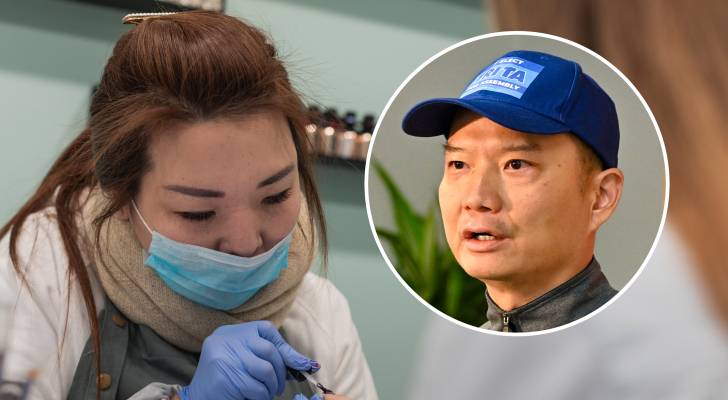
SANTA ANA, CALIFORNIA – A new federal lawsuit is challenging California’s labor regulations, placing Vietnamese-American nail technicians at the forefront of the battle. The lawsuit, filed in the U.S. District Court for the Central District of California, argues that Assembly Bill 5, enacted in 2020, unlawfully reclassified nail technicians from independent contractors to employees, contravening the 14th Amendment’s equal protection clause.
Immediate Impact
The legislation has disrupted an industry predominantly composed of Vietnamese immigrants, generating approximately $3 billion annually, according to the Pro Nails Association. California Assemblyman Tri Ta, representing Little Saigon, expressed the widespread anxiety and discontent among his constituents.
“Their lives have turned upside down overnight,” Ta stated during a news conference. “It is not just unfair, it is discrimination.”
Key Details Emerge
Assembly Bill 5, passed in 2019, redefined worker classifications following a 2018 Supreme Court ruling against Dynamex Operations West. The law outlines criteria for independent contractors, including autonomy, task differentiation from the company’s core business, and service offerings to multiple clients. Failure to meet these criteria mandates employee status, entitling workers to benefits such as minimum wage and overtime pay.
Industry Response
Nail salon owners, like An Tran of Happy Nails & Spa, contend that the law imposes unsustainable financial burdens. Transitioning contractors to full-time employees escalates payroll and insurance costs, squeezing already thin profit margins.
“We don’t have customers all the time. That’s going to cost us a lot more to pay them for the downtime when they don’t have any customers,” Tran told the LA Times.
By the Numbers
- 82% of California nail technicians are Vietnamese
- 85% of these technicians are women
- 80% of nail salon workers earn at or below two-thirds of the median full-time wage
Community Under Fire
Beyond economic implications, the lawsuit underscores cultural and historical dimensions. Many Vietnamese refugees entered the nail salon industry in the 1970s, establishing a legacy that persists today. Attorney Scott Wellman, representing the plaintiffs, emphasized the discriminatory nature of California’s labor laws.
“Vietnamese American manicurists have faced blatant discrimination under California’s labor laws, stripped of the same rights and freedoms afforded to others in their industry,” Wellman stated to KTLA 5.
Health Concerns
Worker advocates highlight broader industry exploitation issues, including health and safety risks. Former technician Pabitra Dash shared her personal health struggles related to salon work, illustrating the potential hazards.
“(My doctor) said, ‘It’s really good for your health and your baby,’” Dash revealed to NBC News.
What Comes Next
The lawsuit marks a pivotal moment in California’s ongoing effort to balance gig economy dynamics with labor protections. Salon owners fear the financial viability of their businesses under stricter regulations, while technicians worry about losing employment rights.
The outcome of this case could set a precedent for labor classifications across various industries, influencing future legislative measures and labor rights advocacy.
As the legal proceedings unfold, the Vietnamese-American community and other stakeholders will be closely monitoring developments, hoping for a resolution that balances economic sustainability with fair labor practices.




